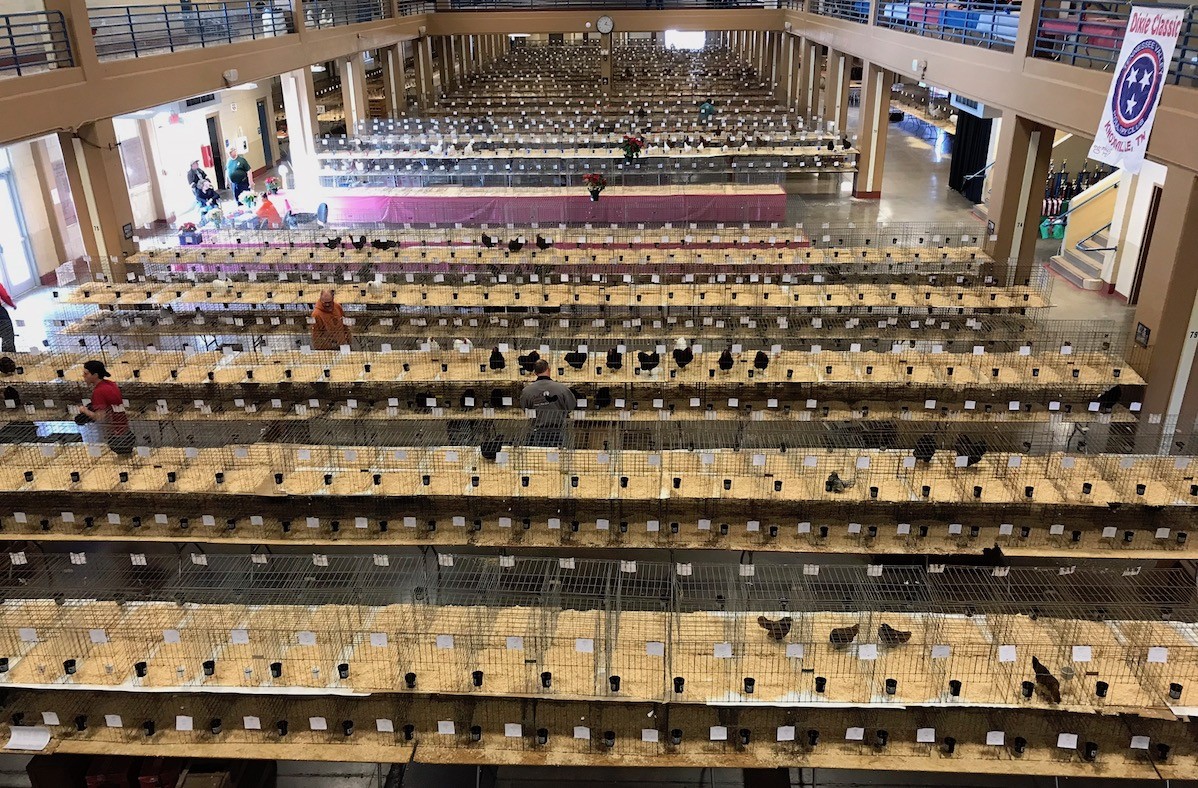Gorgeous, exotic and some just plain weird birds filled 4,500 cages by nightfall Friday at the Dixie Classic Poultry Show at the Jacob Building at Chilhowee Park. The Tennessee Valley Poultry Club is hosting the show, which includes American Bantam Association.
Four hundred exhibitors from as far away as California and western Canada have registered to show their birds this weekend.
The show opens Saturday morning at 9, when the show judging will begin, and runs until 5 p.m. Admission is $5. Awards will be made Sunday beginning at 9 a.m., until all awards have been handed out around noon.

Non-bearded White Crested Black Polish cock
The Tennessee Valley Poultry Club has 24 members. But, of course, like almost every organization a handful do all of the work of setting up tables, arranging the exhibit cages, spreading wood shavings and installing feed and water cups in each of the 4,500 cages.
Chickens are classified in four age groups. Females under 1 year old are called pullets. Mature females are hens. Males under 1 year old are cockerels. Mature males are cocks.
The show includes a range of chicken breeds, along with pigeons, water fowl, turkeys, geese and guineas.
“I’ve been here for the past three days, getting all this set up,” said TVPC member Harry House, who, along with his wife, Sharon, lives in Strawberry Plains. The Houses have 200 chickens of their own.
“There are 10 different classes of chickens, with 5-6 breeds in each class,” Harry House said.

Bearded White Silkie pullet
“Getting some of these birds ready for a show can be like trying to give a bath to a cat. The Mediterranean birds tend to be very active and can be difficult to handle and clean. English birds, on the other hand, tend to be big and docile, making them easier to handle. But it really depends on the individual bird.”
For the most part, exhibitors bring their own birds. Because of the avian influenza outbreak in West Tennessee, all birds must show documentation of being tested three weeks prior to the show.
“Birds also have to be tested for Pulorum to be shown in Tennessee,” House said. “Pullorum hasn’t been detected in years, but testing is still required because it is so infectious.”
Tom Kernan, a grand master exhibitor, brought his Black Ameraucan chickens from Heislerville, New Jersey.

Tom Kernan, grand master exhibitor, from Heislerville, New Jersey, holding his Black American pullet
“He’s an awesome guy,” said Jan Deist, who brought her birds from Mcloud, Oklahoma. “Everyone knows Tom. He’ll actually sell you his best bird.”

